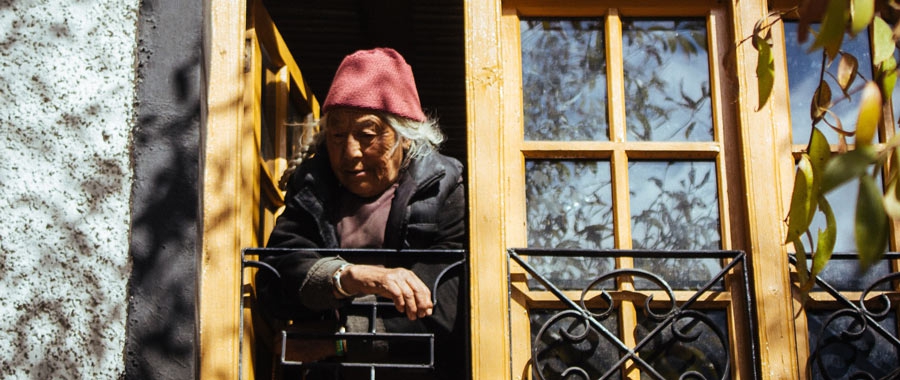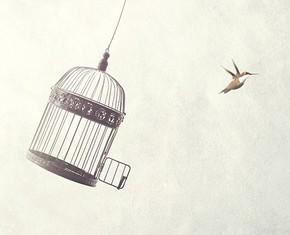The views expressed in our content reflect individual perspectives and do not represent the authoritative views of the Baha'i Faith.
As a result of the recent coronavirus outbreak, I’ve felt the increasingly urgent need to reflect on our elders in American society.
I refer to them as elders, as opposed to the elderly, because elderly can imply decrepit or frail. The term elder means human beings who have great knowledge, wisdom and life experience to share with us all.
“Although some younger people may not be considering these elders, throwing caution to the wind, for the most part all strata of American society now have our elders in their sight”
In the context of this virus I’m defining elders as those over the age of 60, the beginning range of the age group the coronavirus can impact most. The coronavirus has brought our elders into focus more than usual, making us think about them in a way we rarely do collectively. This awareness causes us to consider our elders’ role as members of our society and how to protect and avoid harming them.
Although some younger people may not be considering these elders, throwing caution to the wind, for the most part all strata of American society now have our elders in their sight. Whether a parent, a grandparent, an aunt or uncle, or a valued colleague or mentor or friend, we’re all probably thinking about the elders we want to help survive this pandemic. As the Baha’i teachings suggest, we should consider each of those elders in our lives – and all others, as well – as our close relatives:
Do not be satisfied until each one with whom you are concerned is to you as a member of your family. Regard each one either as a father, or as a brother, or as a sister, or as a mother, or as a child. If you can attain to this, your difficulties will vanish, you will know what to do. This is the teaching of Baha’u’llah. – Abdu’l-Baha, Abdu’l-Baha in London
While reflecting about our elders, I am mostly contemplating their value and worth, compared to where American society places them in its socially-constructed hierarchy. Generally speaking our American culture, with its youth-oriented social norms and materialistic nature, doesn’t appear to value or respect our elders to any great degree.
“If you’d like a recent example, just note the whole “OK, boomer” mentality”
I’m speaking generally, because certainly there are individuals, families and micro-societies within American society that do value their elders, having great respect for the perspectives, the experience and the wisdom they bring to the table. In these circumstances, elders are viewed as part of the whole – a value that impels the seeking out of their guidance and insight.
But American society in general doesn’t always act that way. Instead, it tends to privilege youth rather than age, and therefore de-value wisdom and acquired experience. If you’d like a recent example, just note the whole “OK, boomer” mentality, using a catchphrase which mocks and dismisses the thoughts and opinions of an entire older generation.
Of course, the United States, because of its early colonialism, is a white-complected, predominately male, youth-driven, primarily materialistic society. Are you skeptical? If so, pay closer attention to TV programs, movies, heads of corporations and businesses as just a few examples. At this time in human history we tend, the Baha’i teachings say, to focus primarily on the material aspects of life rather than the spiritual ones:
Love is the fundamental principle of God’s purpose for man, and He has commanded us to love each other even as He loves us. All these discords and disputes which we hear on all sides only tend to increase materiality.
The world for the most part is sunk in materialism, and the blessings of the Holy Spirit are ignored. There is so little real spiritual feeling, and the progress of the world is for the most part merely material. Men are becoming like unto beasts that perish, for we know that they have no spiritual feeling – they do not turn to God, they have no religion! These things belong to man alone, and if he is without them he is a prisoner of nature, and no whit better than an animal. – Abdu’l-Baha, Paris Talks
Although it has always been in my purview, the older I get, particularly as a woman, the more obvious this fact – the devaluing and minimizing of our elders – becomes to me. Most older people will also attest to it. I personally find it fascinating, especially as I begin to understand the perspectives only age can bring.
We know that youthfulness + beauty = power in American society, generally speaking. This has been true for centuries. Of course, definitions of beauty vary, as do the reasons why a few older people do play more of a part in society. For instance, the older in prominent roles now are mostly white males – including the overwhelming majority of Fortune 500 CEOs – and their elder status may only mean they were younger at one point in the same position. Some women do get through who are not young and beautiful as well, but it’s not the norm.
Perhaps it will take a global pandemic to change all this – to make us more aware of the powerful, profound contributions our elders can make.
















Comments
Sign in or create an account
Continue with Googleor